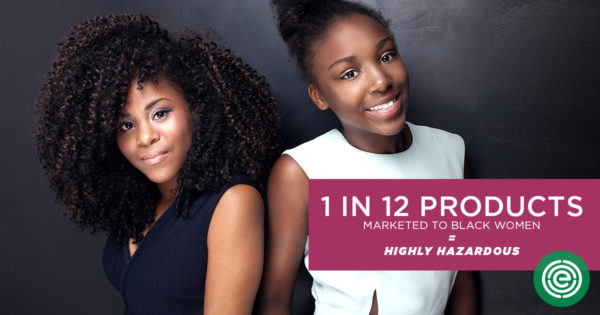In recent years, the use of harsh, chemical-laden cosmetic products has declined as Black women return to more natural hair styles. The market analysis firm Mintel estimates that sales of hair relaxers marketed to Black women dropped by almost 40 percent between 2008 and 2015. Conversely, sales of shampoos, conditioners and styling products marketed for use on “natural hair” are steadily increasing. Between 2013 and 2015 alone, sales of “natural” hair styling products increased by about 27 percent, now comprising 35 percent of the Black hair care market
Black people make up about 13 percent of the U.S. population, but estimates suggest that African-Americans account for almost 22 percent of the $42 Billion-a-year personal care products market. This means that the potential for exposure to harmful ingredients through cosmetics products is higher within the black community than any other demographic.
In an analysis of ingredients in 1,177 beauty and personal care products marketed to Black women, about one in 12 was ranked highly hazardous on the scoring system of EWG’s Skin Deep® Cosmetics Database. Not enough is known about the health hazards of cosmetics and other personal care products marketed to Black women. Advocacy organizations such as Black Women for Wellness, West Harlem Environmental Action and Women’s Voices for the Earth have reported on the issue and published guides for minimizing exposure to potentially hazardous ingredients, but the body of scientific research is woefully sparse. Still, the available studies raise serious concerns.
